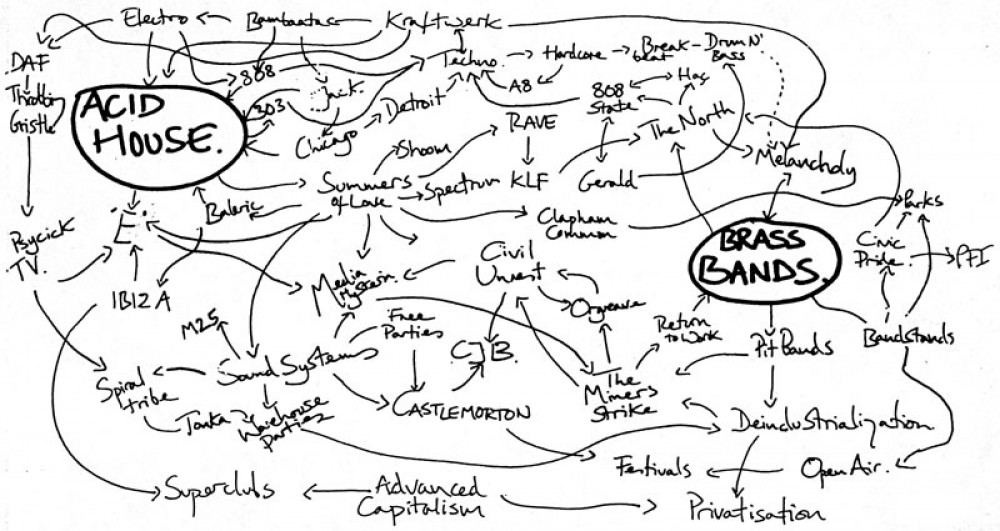Copyright used to be the bane of my life. The mere mention of the word set my teeth on edge and made my hackles rise and nostrils flare. A large part of my old job involved assessing reprographic requests from researchers and deciding whether or not they could be fulfilled under ‘fair use’ http://www.copyrightservice.co.uk/copyright/p09_fair_use guidelines of copyright law (the default answer was ‘no’). The collection I dealt with was vast and varied; encompassing everything from rare books, journals, and maps to public information leaflets, vehicle handbooks, and technical drawings. I became very familiar with this lovely flowchart. http://www.bl.uk/reshelp/pdfs/copyrightflowchart.pdf. Labyrinthine doesn’t even cover it.
Ironically enough I have been guilty in the past of breaching these ‘fair use’ guidelines…when I was doing my undergraduate degree I would happily photocopy huge swathes of library books that I didn’t want to borrow, blithely ignoring the notice on the wall that implored me not to copy more than 5%… And I know that many among my cohort did the same. Why? Was it some sort of vague idea of ‘sticking it to the man’? Pseudo-socialist notions about the democratisation of information? Or simply being too skint to buy expensive academic texts? I suspect the latter; combined with the fact that our photocopying habits went unpoliced by library staff, leading us to believe that it didn’t really matter.
The following overview of copyright protection is taken from https://www.gov.uk/copyright:
“Copyright protects your work and stops others from using it without your permission. You automatically get copyright protection when you create:
- original literary, dramatic, musical and artistic work, including illustration and photography
- original non-literary written work, eg software, web content and databases
- sound and music recordings
- film and television recordings
- broadcasts
- the layout of published editions of written, dramatic and musical works
You can mark your work with the copyright symbol (©), your name and the year of creation. Whether you mark the work or not doesn’t affect the level of protection you have.
How copyright protects your work:
Copyright prevents people from:
- copying your work
- distributing copies of it, whether free of charge or for sale
- renting or lending copies of your work
- performing, showing or playing your work in public
- making an adaptation of your work
- putting it on the internet”
Copyright infringement is often referred to as piracy. The original meaning of ‘piracy’ is ‘the act of attacking ships in order to steal from them’. http://dictionary.cambridge.org/ Digital or intellectual piracy involves the copying of an original work rather than the theft of a physical object, but the act of theft occurs when an unauthorised person exercises one of the exclusive rights of the copyright holder without permission.
Curiously, some scholars regard old-school pirates as early examples of progressive societies; with their true motive ‘not greed but justice’. Music piracy for example is replication, not theft. But home taping is killing music innit. Copyright laws are put in place to ensure that artists, writers, musician and other creative producers benefit from work they have they have created. And those producers are the poets starving in their garrets as well as the Taylor Swifts of the world.
UK copyright law now provides an exception’for the purposes of caricature, parody or pastiche’. There are a number of restrictions to this; including commercial harm and whether reasonable effort has been sought to gain permission. One of the justifying arguments for the (re)use of original work for the purposes of (critical) parody is the ‘free speech’aspect. Although I do wonder who decides if a parody is sufficiently critical. And y’know, whether it’s actually, like funny?? What are the criteria? I imagine a bunch of suits round a table in a board room, watching mash-ups of Star Wars v Pride and Prejudice v Bake Off.
I am quite the fan of parody. Producing a convincing mimesis of an established work or individual style requires a particular skill. Done well, it can be an affectionate homage to originality, a subtle mockery of hyperbole, or a critical satire of the status quo. Or indeed Status Quo.
